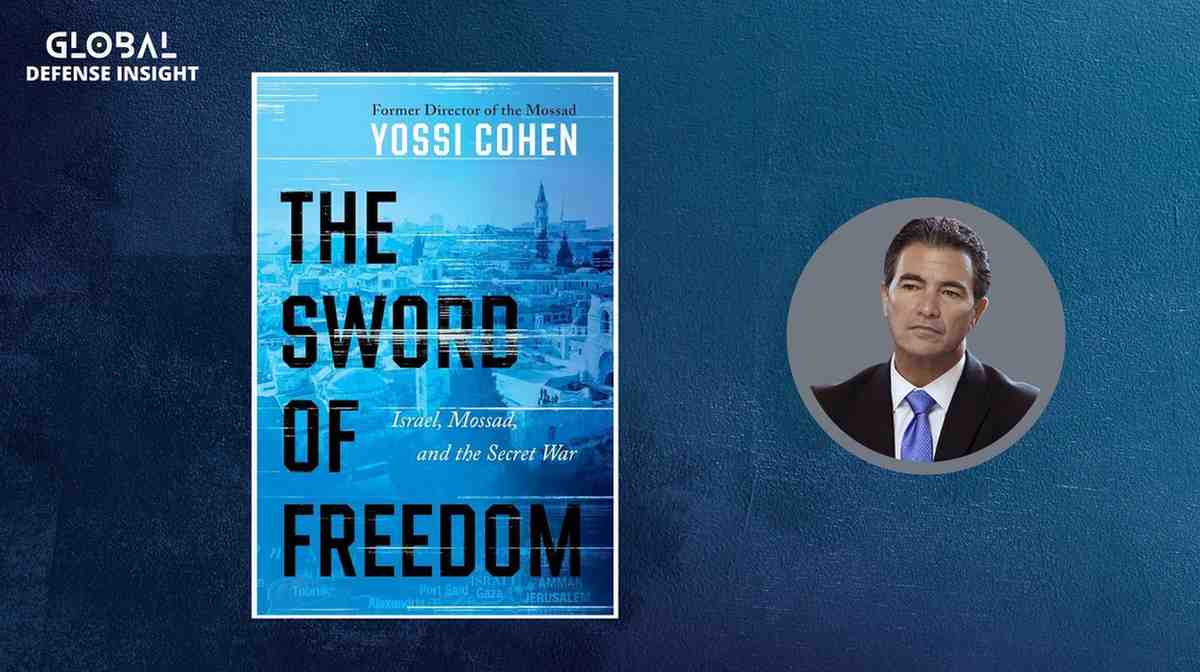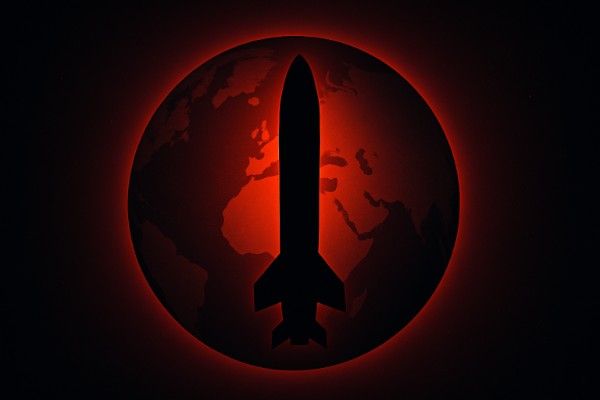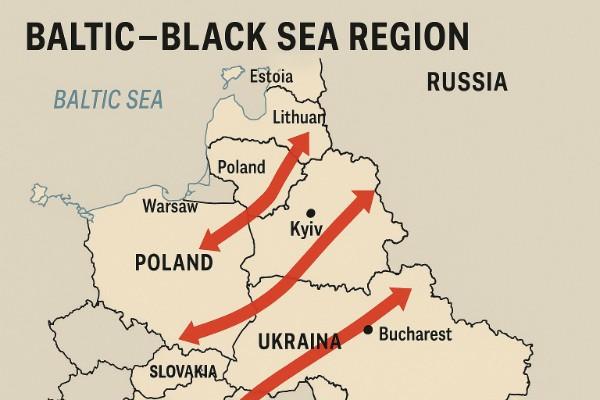A recent in-depth analysis, a memoir with signature Mossad operations, Israel’s secretive agency, captured in a book titled “The Sword of Freedom: Israel, Mossad, and the Secret War” published on September 16, 2025, along with the reflections on current major events like the October 7, 2023, attacks that led to Tel Aviv’s military coercion. The book is authored by Yossi Cohen, who served as Director of Mossad from 2016 to 2021. His notable achievements include the seizure of Iran’s nuclear archives, as well as his diplomacy, which left footprints in the shape of the Abraham Accords; he negotiated between Israel, the UAE, and Bahrain in 2020. He is the first Mossad director known for his openly religious background.
The book is regarded as an insider perspective that carries much strength, and it makes the reader sure that timelines and the accounts presented are reliable. Long-standing strategies of Mossad, especially in the wake of the Hamas attack, make the book highly relevant and clarify Tel Aviv’s strategic perspective on what is called by Cohen in the book “The Day the World Changed”. The strategic insights – artificial intelligence, social media, intelligence operations, alliances and threats, offer interesting and useful strategic lessons.
Moving towards the crux of the book, the writer opens up by emphasising that Israel cannot afford a defeat as a nation, and as the book keeps going forward, every chapter opens up the intelligence, identity, and dimension of warfare. Mossad’s intelligence works are quoted, and its successes and failures as well as the sacred survival of the nation is stressed.
The author, being an Israeli, tries to adopt a balanced approach in his tone. In the beginning of a book, it is highlighted that the Hamas attacked Tel Aviv on October 7, 2023, and how the attack was not anticipated on time, and the shock it gave to the whole state was tremendous in nature, leading to a long war which was not expected. His criticism of Israeli leadership and the failure of agency work are central themes here, though the tone is critical but sober. He further argues that the event redefined Israel’s security psyche and pushed the country to maintain its boundaries and work to safeguard its sovereignty. This is how several Israelis justify their never-ending war on Palestine and the war that took numerous lives on both sides. Cohen’s reasoning exposes how national trauma becomes policy logic and a narrative sustains rather than resolving conflicts.
In a chapter called “An Opportunity Missed”, it is discussed what past mistakes Israel should have avoided and how the intelligence network should have worked in a proper way to prevent the misdeeds and misfortunes. According to him, strategic choices were not advantageous, and preventive actions have been altered, which created chaos in the state and brought dust to the state’s name. He points out the military leadership being too cosy, self-serving and pretending to know it all. He is more towards institutional damages that have imposed harm on the state. His critique here feels selective as he spares those who have empowered these leaders. Additionally, the names are explicitly not given when writing about intelligence-related research. Regret, anger, and strategic reflections are underscored, and it is focused on learning from the past and planning better future strategic policies to develop domination over enemies.
In another chapter, like “Bloodlines”, Cohen’s own family history is traced, and his respect for the country has been depicted through his writings. Such chapters drive his views and make it evident that having strong Jewish roots and a religious-centric family, his country means a lot to him, and Israel’s survival to him is not only strategic but spiritual. His patriotism and family’s deep roots in a country’s religion and jingoism are proof he is overwhelmed in protecting the country. Yet his deep-rooted patriotism occasionally clouds his objectivity, turning the defense of the state into moral destiny.
Moreover, midway through chapters like “Death Has No Dominion” and “A Sacred Duty”, he lucidly explains the deaths of field officers and an immense amount of risks throughout their entire operations, but these sacrifices have never gone worthless; they gave it their all to shelter the state and protect its sovereignty. The author observes how Mossad operatives lost lives in mid-operations, murdered, and are targeted, how they complete operations that entail loss, and the way country copes with these deaths. The stories of mourning are emphasised, and the families who lose their dear ones. The operational imperatives in the face of dangers are the significant points raised here. These people consider their missions a sacred duty, spiritual rather than just political. Just beyond intelligence, that work is done by the agency to provide a safety net to the state. The writer does not hesitate to put into words the losses during the operations but also presents a written account of the valour of their officers who lose their lives while protecting their countries; their bravery and determination have strengthened the foundations of the state.
In a chapter “According to Foreign Reports”, Cohen brings into the limelight how the external world deals with Israel, the foreign media reporting, covering its operations, intelligence leakages, and how the perception of Israel runs abroad. More significantly, it is how foreign intelligence shapes these operations and makes them diverge from their routes, but external views regarding the Mossad have been highly covered, and the dealings with these perceptions are sourced. The organisation seeks to manage global narratives regarding its operations and adapt when needed.
Perhaps the most gripping chapters include “The Art of Seduction” and “Tip of the Spear”, where Cohen mentions that data collection and interpretation require developing an alliance with regimes, the development of a network to operate, and persuasion and diplomacy are considered as moral dimensions in espionage, and Mossad has worked on each of these dimensions to protect its country. In addition to this, he argues that every skill is perfectly mastered by its team, and the web it creates makes it tough for others to escape. He does not hesitate to pinpoint Mossad’s 2018 seizure of Iran’s nuclear archives. He gives the readers the path to dive into Mossad’s operational mindset as well as its deep operations with strong strategies. Though the classified details still remain hidden, the scope and sophistication of modern intelligence work are enough to impress the readers.
In one of the chapters, he also points out how being a director of the world’s most powerful agency has personally affected him. He accepts disappointment in the strategic assessments at points, becomes vulnerable and presents his ethical dilemmas along with the regrets he still endures.
In later chapters, “Science Fact” and “Three-Dimensional Chess”, Cohen goes beyond the field to discuss the technological advances, geopolitical problems and the leadership. His point of view is that Israel is navigating a complex world order: shifting alliances, emerging new against Tel Aviv, fragile relations with the US, cyberwarfare attacks and much more. Israel’s foreign relations and multi-dimensional layered working, balancing multiple threats (Iran, Hamas, Hezbollah, and regional targets), are discussed in detail. His tone reflects the middle point of strategic realism and philosophical idealism; he argues that the country is in a brutal need to master technology and strengthen policies to survive.
Moving ahead, in the subsequent chapters “Speaking Truth to Power” and “New World Order”, he valuably interacts with Israeli leadership and political actors. He, though, presents criticism but convinces the leadership on various issues and challenges in a sober way. Political decision-making and intelligence advice have always remained at the verge of the conflict. He admits it all and asks for a way out to stabilize the states. Moreover, Cohen notes how rising powers are taking space in the international arena, and the US, China, and Russia affect Israel, and urges the leadership of the state to adapt to these circumstances.
In the last chapters, “The Special Relationship”, “Winning the War, Securing the Peace” and “Cut Us and We Bleed”, it is focused on how the country’s relation with the US has leveraged it at several points: intelligence sharing, diplomacy and strategic assistance. Further, he discussed addressing the root causes of the war, maintaining peace, and strategies to build a peaceful environment. These are the points that address strategy beyond military, as preventing re-escalation is seminal of all. Most of all, he believes that peace is possible; his suggesting models to maintain stability is astonishing due to the fact that people around the world believe that Israelis might not want peace. At last, he discusses how the psychological toll Tel Aviv has survived for centuries and how casualties and moral costs have impacted its people and Mossad. He portrays vulnerabilities of people of Israel and how they deal with wars: the recent hostage issue has also been noted, like how people are suffering whose loved ones are imprisoned by Hamas. His emotions say it all, like what he felt for years and his desperation for peace so that people can at last feel the stability.
At last, he sums up his Israel in the chapters “My Israel” and “Completion of the Circle”: the country’s identity, its struggles, wars, how Mossad has worked for long to shelter the country, and widening the intelligence network to protect the country’s sovereignty. Maintaining the state’s identity, moral integrity, security, and democracy are necessary, and he explores the points to prescribe these elements. He is hopeful that stability will come and the struggling phase will end.
His introspective tone has gripped readers’ minds: his critique of the leadership demonstrates he is haunted by pride and pain. Though he remains critical of the political leadership, his analysis overlooks several key facts, which we can conclude might be because of his strong Jewish roots. The book is written with a distinctively Jewish perspective; while his analysis holds weight, it lacks sympathy with Palestinians and those who have been ruined by Mossad and its network. Moreover, the written account serves both as a defence of Tel Aviv and a confession of intelligence ethos. His reflections expose that the state is in a persistent struggle to survive and maintain morality and balance secrecy with legitimacy. What makes the book compelling is that the fear, re-alliances, faith, and national trauma are gripped to craft strategic policies, and the leadership is called for taking accountability where faults occur and gets criticism often. Being an insider voice, Cohen not only defends Mossad’s actions but also addresses the root causes of these actions and uncovers the emotional and ideological foundations of the Israeli state.

Table of Contents
ToggleZara Mansoor
Zara Mansoor is an International Relations scholar and political analyst from Islamabad, Pakistan. She contributes to various national and international magazines and newspapers. Her research primarily focuses on international security, with a specialisation in nuclear proliferation and non-proliferation.













